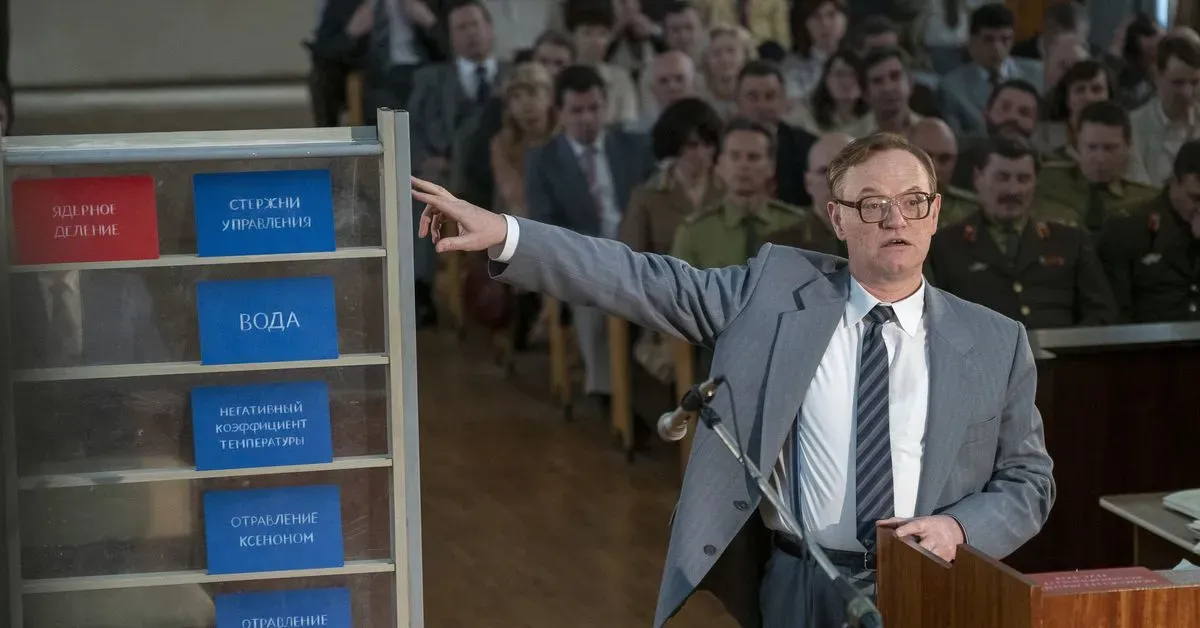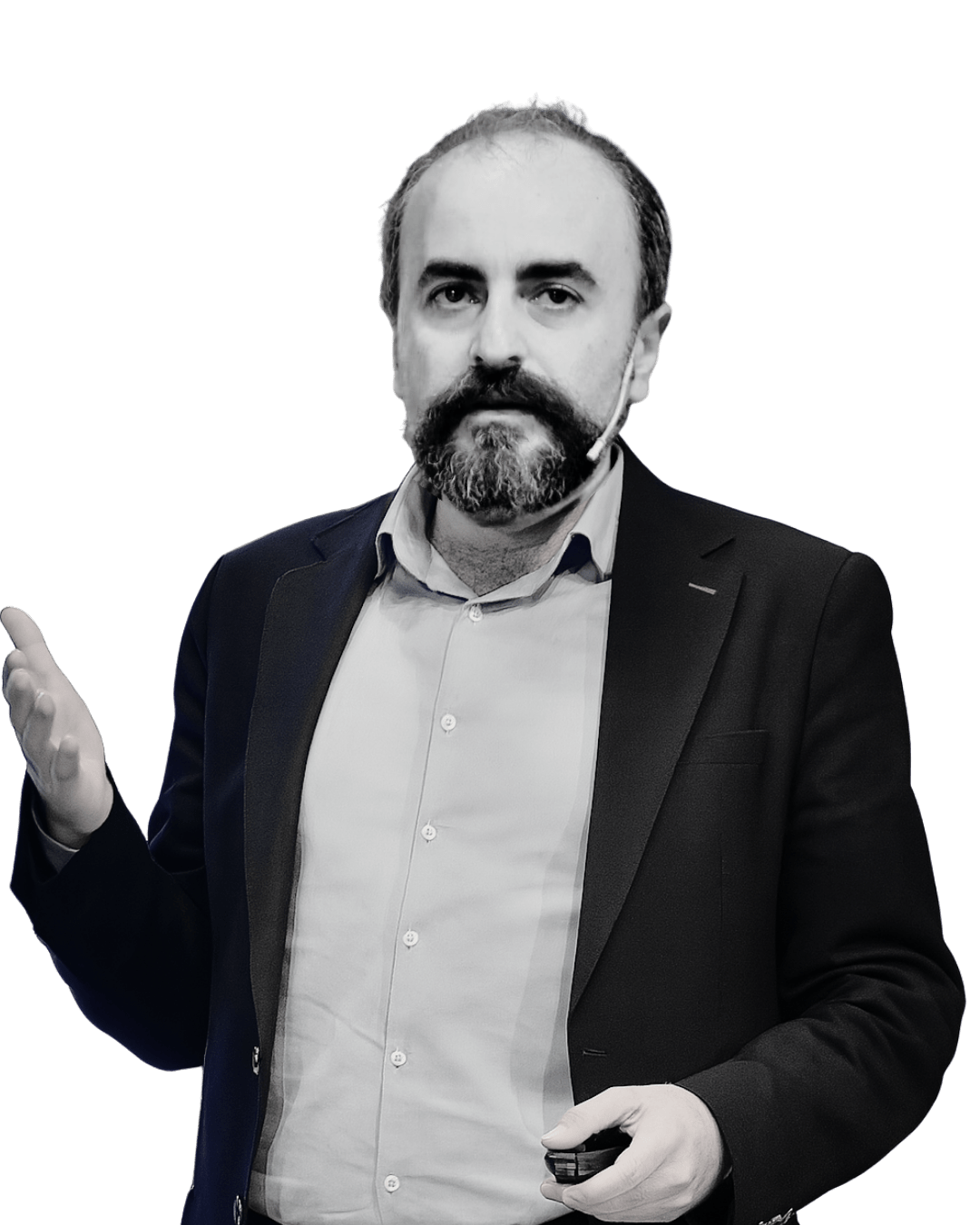I often wonder what really caused the Chernobyl disaster. Was it just outdated technology, or was there something else behind it? How could a nation so advanced at that time—one that sent the first human into Earth’s orbit—fail to prevent and contain such a huge accident? Could it be that a deeper moral decline played a bigger role?
To find answers, we can look at the story of Valery Legasov, the Soviet nuclear physicist who led efforts to manage the situation after the reactor exploded. I found a very interesting interview with him—his final interview, in fact—where he spoke about what he believed were the real reasons for the tragedy. According to him, Chernobyl happened not only because of technical problems, but also because people lost their moral values.
Valery Legasov’s Story
Legasov was a recognized expert on RBMK nuclear reactors. After the Chernobyl plant blew up in April 1986, he led the efforts to contain the crisis. He was exposed to heavy radiation, and later developed cancer. Despite his knowledge, Soviet authorities forbade him from telling the media about the real flaws of RBMK reactors. They worried such confessions would damage their image.
But Legasov refused to remain silent. He recorded confessions on audio tapes and hid them outside his home. On April 27, 1988—exactly two years after the Chernobyl explosion—he died by suicide at 1:23:45 a.m., matching the time of the original accident (1:23:45 p.m., April 26, 1986). His final act forced Soviet leaders to admit the reactor problems and make vital corrections, preventing more disasters like Chernobyl.
Shortly before his death, in February 1988, Legasov spoke with Ukrainian journalist Yuriy Shcherbak. Here, he shared a surprising view of the deeper causes behind Chernobyl’s explosion.
I have read Valery Legasov’s final interview, searching for clues he provided about the real reasons behind the Chernobyl tragedy. Here is what I discovered:
1. Moral Foundations in Technology
Legasov believed that the Soviet Union’s great technological achievements (like launching Yuri Gagarin into space) were possible because of a strong moral and cultural background:
“Technology of which our people is proud, which ended with Gagarin’s flight, was created by people who stood on the shoulders of Tolstoi and Dostoevsky…”
He explained that the generation who made such progress had been deeply influenced by Russia’s rich literature and art. This shaped how they approached their work:
“…The creators of the technology of that time were educated in the spirit of the greatest humanitarian ideas… In the spirit of a beautiful and correct moral sense… And technology for them was simply a means of expression of moral qualities, placed in them.”
2. Losing the Moral Compass
Over time, Legasov suggested, later generations of engineers focused almost entirely on technical details rather than moral or humanitarian principles:
“And already in the generations that succeeded them, many of the engineers stood on the shoulders of the technocrats and saw only the ethereal side of things… he can only reproduce technology and perfect it, but he cannot create anything qualitatively new, for which he can be responsible.”
Because of this narrow focus on pure technical skill, some engineers lost their sense of responsibility. Without a strong moral framework, mistakes could happen too easily.
3. One Weak Link Can Break the Chain
Legasov stressed how even one careless individual could break the entire system:
“It seems to me that the general key to everything which is happening is the fact that we have for a prolonged period been ignoring the role of the moral principle… All this has led, strictly speaking, to the fact that some of the people, in their positions, could have acted without due responsibility. And even one person, working badly, creates a weak link in the chain, and it breaks.”
In Chernobyl’s case, the test operators believed they were doing something for the greater good, but they ignored critical rules:
“In fact, if one listens to those directly guilty of the accident, then their objective was only the general good… And some considered that this was safe, others that doing it like that was even better than in the instructions… Their objective, you see, was entirely honourable…”
Yet, for Legasov, good intentions could not make up for reckless neglect. Their confidence led them to override safety protocols, creating the perfect setup for a major disaster.
4. Root Cause: Moral Decline
So, did old technology alone cause the tragedy? Legasov made it clear that poor equipment was just one factor. He believed the true source of the problem was a loss of moral values in key people:
“The low technical level and the low level of responsibility of these people is not a cause, but an effect. The effect of their low moral level.”
For him, the moral dimension was the foundation of responsible behavior. Without it, no matter how advanced or flawed the technology, the outcome could be catastrophic.
How Could Moral Decline Happen in a Technologically Advanced Country?
From my reading of Legasov’s interviews, it seems that the USSR’s totalitarian system played a big part in this moral decline—even though it loved technology and wanted to show off its achievements to the world:
Culture of Secrecy
In a rigid, top-down political system, secrecy becomes the default. While officials boasted about sending cosmonauts into orbit, they also hid problems in nuclear power plants, preventing open discussions about risks. This secrecy undercut honest communication and made it easier for critical safety warnings to be ignored.
Fear Over Responsibility
A totalitarian regime often punishes dissent. If you question authority—perhaps by pointing out reactor flaws—you might face severe consequences. Over time, even well-meaning engineers or scientists learn to keep quiet. Good intentions get swallowed up by fear, and moral courage weakens.
Obedience to Orders
In such systems, orders come from the top. People down the chain believe their duty is to obey rather than challenge. Legasov noted that some Chernobyl personnel wanted to complete a testing procedure “no matter the cost,” ignoring safety rules. This blind obedience was lethal when dealing with a high-risk reactor.
Lack of Transparent Feedback Loops
Scientific progress needs open debates, learning from errors, and adjusting protocols. Under a totalitarian system, mistakes remain hidden to protect the government’s image. The result: repeated negligence and a gradual decaying of moral and ethical standards.
Focus on Results, Not Values
The Soviet Union wanted to prove its technological might—whether by building the biggest reactors or setting space records. As Valery Legasov observed, if people only see the “technical side” of problems, they might ignore the moral side. When success is measured by how quickly or impressively a project is finished, ethical considerations can fall behind.
Not All Were Morally Declined
It is also important to note that not everyone in the USSR during the Chernobyl era had lost their moral values. Many brave individuals sacrificed their lives to contain the reactor’s damage and help people in nearby towns. The first responders, firefighters, and other volunteers showed tremendous courage. Some of them died within days or weeks due to the extreme radiation they faced. Their actions proved that, even in a system where morality at a high level had decayed, ordinary people could still act with great compassion and responsibility.
A Warning for the Age of AI
Today, we are witnessing the rapid rise of new technologies, especially AI. It almost feels like AI is swallowing everything—taking over industries, jobs, and even creative tasks. While these innovations bring huge possibilities, they also raise questions about ethics and values. Will we focus only on technical feats and profits, or can we remember the human side of every breakthrough?
Just like during the Soviet Union’s technological race, we risk neglecting moral responsibility if we become too dazzled by AI’s capabilities. If we ignore safety, fairness, privacy, or the wellbeing of people, we might create more problems than we solve. The lesson from Chernobyl is clear: even in the most impressive technological feats, a loss of moral vigilance can lead to disaster.
Legasov’s experience warns us that true innovation require not just technical expertise, but also ethical awareness. One mistake by a morally unprepared person can put countless lives at risk. Legasov’s memory reminds us that combining moral principles with technology is necessary if we want real progress. A progress that does no harm.
By recognizing the sacrifices of individuals who stood up for what was right, and by maintaining the sense of responsibility that once came from great literature, art, and humanistic education, we might prevent future catastrophes. We can stay excited about AI and other emerging fields, but we should also remain mindful of ethics, transparency, and compassion—ensuring that our enthusiasm does not overshadow our sense of responsibility.
Author’s note: This is a revised version of the a post with new perspective that I have published here, previously.


Soheil Abbasi
Innovation Ecosystem Orchestrator | AI Venture Builder | Startup Mentor & Investor